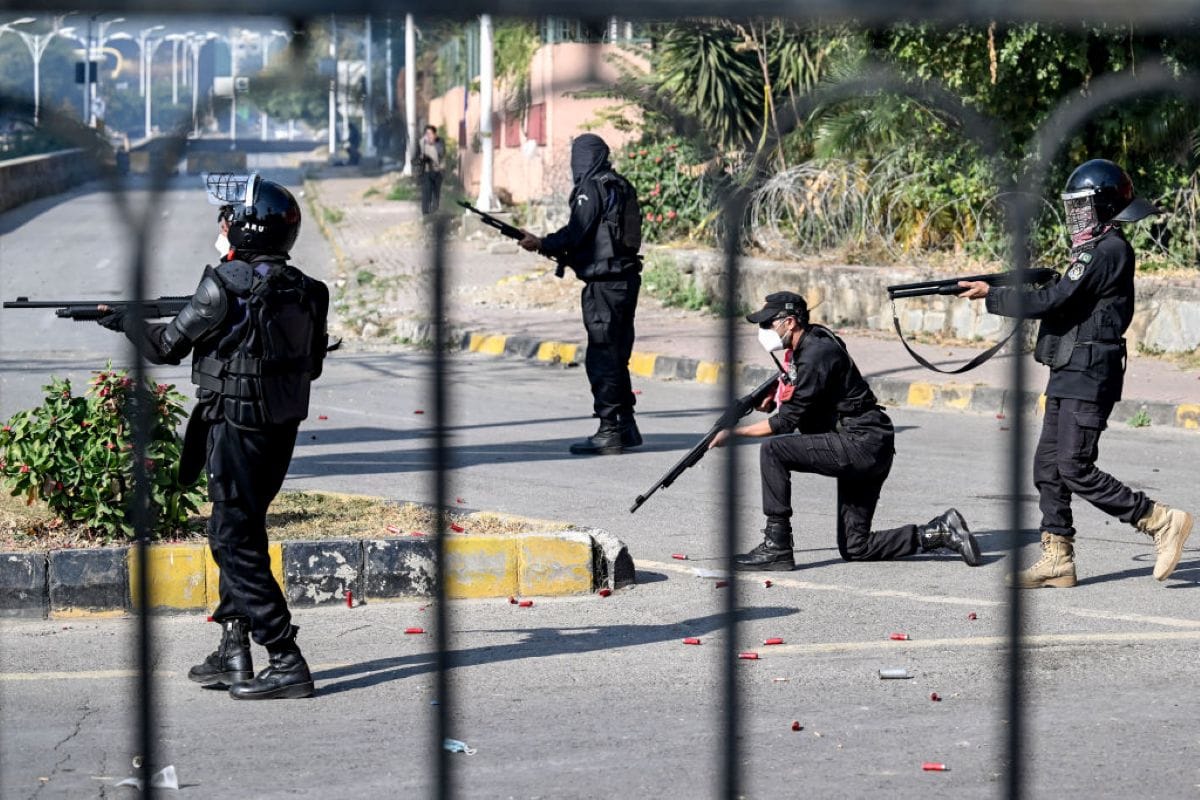The spokesperson for the Pakistan Army, DG ISPR Ahmed Sharif, held a significant press conference yesterday that elicited strong reactions from the Pakistani public. The conference primarily addressed political and social issues, with little emphasis on defense matters. DG ISPR highlighted seven key points during his speech.
Afghanistan and Terrorism Links
DG ISPR stated that terrorism in Pakistan is linked to Afghanistan, where terrorists have safe havens. He criticized the Afghan government for its inability to take action against these elements.
Former Prime Minister Imran Khan expressed regret and strongly condemned Pakistan’s airstrikes in Afghanistan, which, according to the Afghan government, resulted in the deaths of women and children. Imran Khan emphasized the need for Pakistan and Afghanistan to engage in dialogue to resolve the issue of terrorism, as Afghanistan is Pakistan’s neighbor, and all problems can only be solved at the negotiation table.
Political Statements and Criticism
During the press conference, DG ISPR called Imran Khan a “hypocrite” in response to a question, alleging that he does not admit his mistakes. DG ISPR also questioned how terrorism, which was eradicated in 2021, managed to resurface. This statement drew sharp criticism from the public on social media. PTI member Saira Bano attributed the resurgence of terrorism to former Army Chief General Qamar Javed Bajwa.
Senator Mushtaq Ahmad Khan claimed that when terrorists fled to Afghanistan due to military operations, the military leadership was ready to bring them back, provided they accepted the Pakistani constitution, surrendered their weapons, and adhered to Pakistani laws. This agreement, reached during Imran Khan’s tenure, was fully backed by the military. In 2020 and 2021, military leaders justified the deal by comparing it to the U.S.-Taliban agreement, arguing that if America could negotiate with the Taliban, Pakistan could do the same. At the time, both General Qamar Javed Bajwa and General Faiz Hameed endorsed the agreement as appropriate, and even junior officers supported it.
BBC and Al Jazeera Reports
Reports from BBC and Al Jazeera alleged that Pakistani forces opened fire on protesters, causing fatalities. DG ISPR’s claim that no bullets were fired by Pakistani forces contradicts these reports. The public questioned DG ISPR about the disappearance of hospital records of those killed, asking why the journalists investigating these records were allegedly abducted by Pakistani forces. Initially, both the government and the military denied that any firing had taken place, but after social media exposed the truth, the government and army admitted that bullets were indeed fired.
Criticism of the Judicial System
DG ISPR defended the decisions of military courts during the press conference, asserting that the convicted individuals retain the right to appeal in civilian courts. However, the public criticized military courts as “kangaroo courts” and raised objections to their rulings.
Political Interference and Public Questions
DG ISPR remarked that poor governance places undue pressure on the military. However, the public questioned on social media why the military feels entitled to comment on or interfere with political negotiations if the country’s political parties are already in talks. The public also argued that the military’s interference is a significant reason for the failure of civilian institutions in Pakistan.
Other Issues Raised by the Public
DG ISPR addressed the events of May 9, poor governance, military court decisions, and actions against electricity theft. However, the public raised concerns about the military’s involvement in political and civilian matters, questioning why the military interferes and who is accountable for the failure of civilian institutions.
Unanswered Questions and Global Pressure
Several key questions were left unanswered during the press conference. One major question that should have been asked was regarding the U.S. sanctions on Pakistan’s missile program and the ISPR’s stance on the matter. The public also questioned the global pressure resulting from military courts, which threatens to impose economic sanctions on Pakistan.
The public believes that without addressing these critical questions, the press conference remains incomplete.
